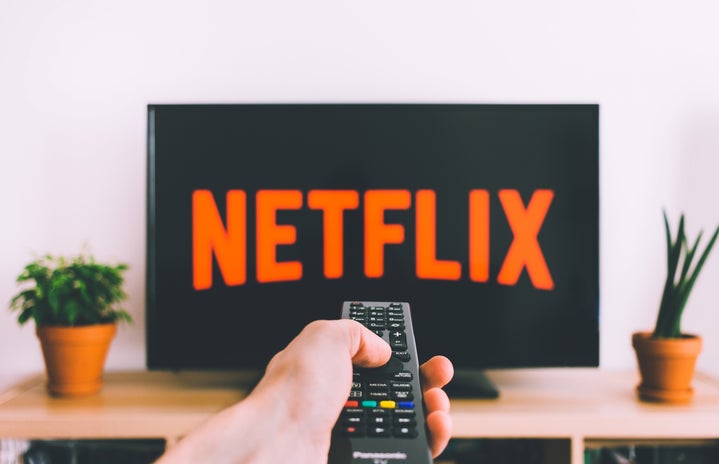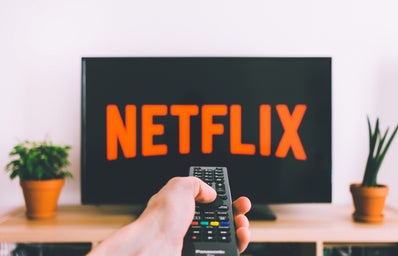If you’ve never seen an episode of Black Mirror, then the season four episode “Hang the DJ” may be a good place to start. The British Netflix series––which takes its premise from shows like The Twilight Zone–– uses each episode to expand on what our future may look like, and what will come with it.
Examining the technology of dating apps, this episode feels too similar to applications like Tinder, making it all the more eerie to watch. But instead of Tinder or Bumble, the dating system is called Coach, a companion who puts users through different matches in order to find their 99.8% match. The difference with Coach, however, is how from the first date, the couple is told how long their relationship will last. From partnerships lasting only a night to years, it is all a part of a system to find each person’s perfect match.
The episode follows Frank (Joe Cole) and Amy (Georgina Campbell), two users trying to find their match. Initially, the two are put together, with a meeting time of only 12 hours before they part ways. The following day, they are paired off with a new match, both for longer periods of time. When Frank and Amy are paired together again by Coach, they realize they have strong feelings for one another and decide to not check how long their relationship will last.
Picture Credit: Netflix
When watching Black Mirror, there is always a very obvious component of the modern-day world. Though these ideas are always an extension of current society, brilliantly, writer Charlie Brooker creates a world of technology not too far off from our own. These situations could easily be real, causing viewers to doubt not only the technology in our society but both relationships and the complexity of contemporary dating. “Hang the DJ” explores these questions, focusing on the question of what would happen if we knew the expiration date of a relationship. Would anything change? Would it be real?
More importantly, like in most Black Mirror episodes, the issue of distrust in technology becomes central to the plot. In a world that is so highly dependent on technology to simply live a normal day, what happens when we begin to question its reliability? Both Frank and Amy are faced with this problem when they become skeptical of Coach and if it will truly lead them to meet their perfect match. Perhaps what is most telling is when the couple’s skepticism leads them to ignore the technology their relationship is based around, prompting an aftereffect that changes the basis of their connection.
Frank and Amy are slightly suspicious of the idea of Coach, yet they both go forward with the dating system with hope. This future technology begins to feel a lot closer to apps like Tinder as viewers watch Frank and Amy, who each have their own distinct personalities and ways in handling the awkward affairs they are put through, making this feel all too familiar. Part of what makes this episode so great and popular among viewers is because people understand this technology and what it’s like to be a part of it, and the actors portray these experiences perfectly.
Picture Credit: AV Club
Yet the best part of “Hang the DJ” is not its relatable technology or the hypothetical questions it addresses, but what its relationship with humanity reveals. It dives into the reason why humans feel the desire to participate in these technological advances of dating apps. This is more than just a new way to find a significant other, but it uncovers the roots of humans’ fear of loneliness. Coach becomes more than just an advance in society, but truly just an exhibit of human fears. Brooker contrasts the innate human fear of loneliness with the modern human fear of advanced technology, creating a complex idea that humans still are working understand today.
One of the few Black Mirror episodes with a positive ending, there is something that is able to prevail over both the innate and modern fears. It is love, not technology, that succeeds in the end, and viewers regain some faith in the system we have become so accustomed to. A true testament to our society, while technology will continue to become more intricate and controlling, love always finds its way out.
Cover Photo Credits: DenofGeek
Want to keep up with HCBU? Make sure to like us on Facebook, follow us on Instagram, check out our Pinterest board, and read our latest Tweets!



